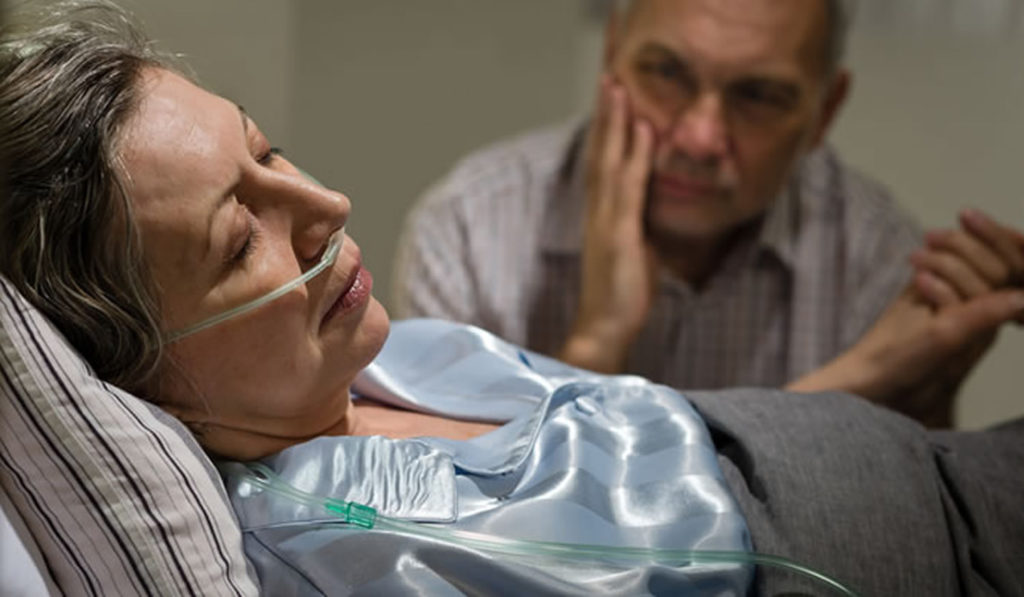Contents
What Is A Diabetic Coma?
When a person with either type 1 diabetes or type 2 diabetes suffers unconsciousness and becomes disoriented. It can be fatal and usually occurs due to extremely low blood sugar levels (hypoglycemia) or remarkably high blood sugar levels (hyperglycemia). These extreme sugar levels can lead to a collapse of the system and you become unresponsive to external stimuli.
Hyperglycaemia can make you feel light-headed and there are chances that you lose consciousness for some time. While hypoglycemia can cause dehydration and disorientation. If left unsupervised, a hyperglycaemic or hypoglycaemic patient can quickly stumble into a diabetic coma as their condition worsens progressively.
There are times when if your body is under ketoacidosis it can snowball into a diabetic coma. Ketoacidosis is one of the leading causes of death for Diabetes Patients under the age of 24. This complication usually arises in Type 1 Diabetes mellitus when the bloodstream of a diabetic patient starts to have dangerously high levels of ketones and blood sugar leading to a spike in the acidic ph. of the blood and can be fatal. It is recommended that you see a health care professional as soon as possible.
Symptoms of Diabetic Coma

Your body has various ways to tell you that it is in distress, similarly when your body is about to go into a diabetic coma it shows the symptoms of its ailment. Two of the most common symptoms are those of Hyperosmolar Syndrome and ketoacidosis for example:
Hyperosmolar Syndrome
- Blood sugar levels spike up as high as 600-650mg/dL
- Lack of ketones in the urine
- Consistency of your blood might thicken
Ketoacidosis
- Blood sugar levels can go as low as 250 mg/dL
- Fatty acids become the primary source of fuel instead of glucose
- Excess of ketones present in blood as well urine
Non-ketotic Hyperosmolar Unconsciousness
Non-ketotic hyperosmolar unconsciousness is usually more dangerous than diabetic ketoacidosis since the dominant symptom is torpidity that progresses to obtundation, rather than regurgitation and an unmistakable illness. Amazingly high glucose levels are accompanied by a lack of hydration as a result of inadequate liquid intake. Patients with typhloea experience a lot of unconsciousness.
Some of the common symptoms of high blood sugar levels are:
- Disorientation
- Nausea
- Hunger
- Rapid heart rate
Some of the common symptoms of low blood sugar levels are:
- Exhaustion
- Confusion
- Sweating
- Nervousness or anxiety
Risk Factors of Diabetic Coma
Being a diabetic patient can put you at an automatic risk for diabetic coma. However, certain factors can increase this risk even more. These include:
Poor Insulin Delivery
For the patients who have to use an insulin pump, sometimes the tube can twist or the catheter falls off which can disrupt the delivery of insulin. This series of events can result in ketoacidosis of the body.
Surgical Injury of Blunt Trauma
When your body is inflamed or has gone under surgery, or it has been subjected to blunt force trauma then in such conditions the blood sugar levels rise automatically. If you have type 1 diabetes and you don’t inject your insulin dosage immediately it can lead to ketoacidosis. Sometimes medical emergencies like heart failure and kidney failure can cause Hyperosmolar Syndrome.
Mismanaged Diabetes
Ill management of your sugar intake or irregulated blood sugar management can put you at risk of fatal complications. It is critical to managing your meals and your glucose intake if you come into the diabetic spectrum.
Alcohol and Drug Abuse
Alcohol has an enormous amount of carbohydrates which can spike up your blood sugar levels and can increase your risk of diabetic coma.
Skipping Meals and Fasting
Skipping meals for a long time can cause weakness, low blood sugar, seizures, and sometimes even diabetic coma. This is why it is essential to maintain your blood sugar levels, eat your meals timely and maintain your insulin levels.
Treatment For Diabetic Coma
Keto Acidotic Coma
Treatments for keto acidotic coma involve intravenous fluids along with potassium administration through different supplements into the body.
Hyperosmolar Coma
Treatment for Hyperosmolar coma includes intravenous fluids along with the intervention of sodium and potassium supplements into the body of the patients.
Hypoglycaemic Coma
Treatment for hypoglycaemic coma involves injecting the patient with a Glucagon injection or administrating intravenous glucose into the body to reverse the effects of insulin.
Prevention From A Diabetic Coma
Do’s
Following a Consistent Diet

Following the meal plan as directed by your doctor and dietician is very important since their little slip-ups now and then can lead to consistent high sugar levels.
Journal Your Blood Sugar Levels

Maintaining a proper record of your blood sugar can help you realize the pattern at which your blood sugar fluctuates and what are dietary changes that you need to make to fix that. Not only this will also help your doctor keep up with your treatment. Check more frequently if you started working out and maintain your insulin intake according to that.
Be Prepared for an Emergency
Illness or sudden inflammation of the body can cause fluctuation of blood sugar levels. Discuss these possibilities with your medical health practitioner in advance because emergencies don’t come with a warning. Prepare an emergency tool kit for times when you get into such a situation.
Keep Your Ketones in Check
If your blood sugar level reads at 250-260mg/dL for a few consecutive readings then you should look into your ketones. When your body is low on glucose and is using fatty acids as its primary fuel then it produces ketones. If your ketone levels are high and you experience nausea or vomiting at the same time then you must immediately consult your doctor because your body might be going into ketoacidosis which can very likely lead to diabetic coma.
Don’ts
Don’t Forget Your Medication
Your prescribed medication is something your doctor decided on after looking into every aspect of your health condition and the severity of your disease. Therefore, forgetfulness and skipping medications are never a good idea.
Don’t Forget to Fuel Up
If you are someone who experiences low sugar quite frequently, then you need to stack some sugar or glucose sources with yourself this will help bring up your blood sugar levels in case of emergencies. It can include sources like fruit juices, energy bars, glucose tablets, and other things.
Steer Clear of Drugs and Alcohol
Alcohol can have an unpredictable amount of carbohydrates and shoot up your blood sugar levels to unprecedented levels therefore it is better to completely lay off alcohol for diabetic patients.
First Aid for Diabetic Coma
Here are some of the necessary steps that need to be taken to make sure that the patient that has lapsed into a diabetic coma is not critical, here are a few steps that you can take:
- Call an ambulance (102) immediately
- If they have already passed out and are unconscious, don’t try to give them anything to eat or drink as they might choke.
- If they are lying on their back turn them towards the side to facilitate better breathing
- Don’t try to inject them with insulin
- Contact the doctor on call and administer any instructions given by the doctor on the phone
- Make sure they are breathing steadily and have enough flow of oxygen
Recovering From Diabetic Coma
Once you are out of the critical condition and your blood sugar stabilizes you will start feeling better eventually. If you’ve been unconscious for a while, you might feel a little dizzy but that will go away soon.
When it comes to fatal situations like diabetic coma it’s necessary to receive prompt treatment. If your diabetic coma lasted for more than a few hours, there are chances that you could suffer from irreparable brain damage. If you did not get immediate medical attention when you were in the coma it can even lead to death. Diabetic coma is a severe medical condition and needs to be treated as such.
Your doctor might recommend wearing a hospital bracelet that explains your medical condition to the people around you for future emergencies. If you endure diabetic coma without being aware of your diabetes then your doctor will suggest a suitable medical prescription that will include recommendations for your diet as well.
A Word From MantraCare
Do you want to get rid of diabetes? Join our online diabetes consultation program and reverse your Diabetes naturally through lifestyle changes such as a Personalized Diet plan, Exercise, dieticians, and health coaches.


